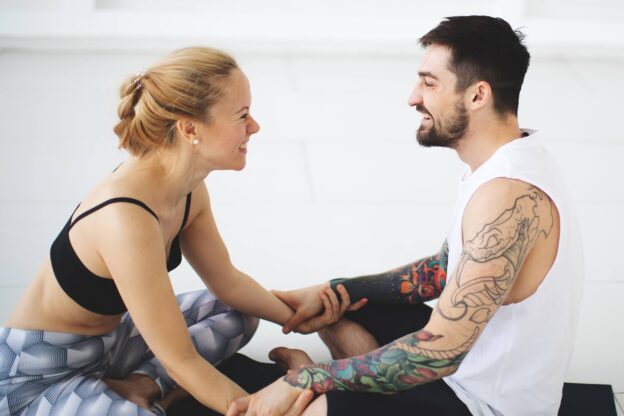Enhancing Connection and Communication
We’re all in this crazy rollercoaster of life together, and one thing’s for sure: relationships are like the secret sauce that makes it all worthwhile. Whether you’re in addiction recovery or simply aiming for a more mindful and fulfilling life, your connections with others are crucial. Let’s dive into why relationships are so darn important in addiction recovery, how to have more mindful relationships. Also, let’s talk about some helpful tips for better connection and communication. Here we go!
Why Relationships Are Your Rock in Addiction Recovery
- Lean on Me – Emotional Support: Addiction recovery isn’t a walk in the park; it’s more like an epic journey. Having people who understand what you’re going through can be a game-changer. These folks provide emotional support, kind words, and a safe space to spill your feelings, making it less likely for you to slip back into old habits.
- They’ve Got Your Back – Accountability: Imagine having a crew that keeps you in check. When you share your recovery goals with them, they’ll be your friendly accountability partners. Sometimes, all you need is a nudge (or maybe a loving shove) to stay on track.
- Finding Your Tribe – Connection and Belonging: Addiction often leads to isolation, and that’s not a good place to be. Rebuilding and nurturing relationships can restore that sense of belonging we all crave. Feeling connected to others is like food for the soul, and it plays a massive role in your overall happiness.
- Stress Be Gone – Stress Reduction: We all know that stress can be a trigger for relapse. Having a strong support system can be like a stress buster. Sharing your worries and burdens with them can be incredibly freeing.
Mindful Relationships: The Secret Ingredient
So, what’s the deal with mindful relationships? Well, it’s all about being present and fully engaged in your interactions with others. Here are some tips to make your relationships more mindful:
- Know Thyself – Self-Awareness: Start with some good ol’ self-reflection. Understanding yourself better is the foundation of mindful living and mindful relationships. Know your values, your needs, and the things that set you off.
- Listen Up – Active Listening: Ever have a conversation where you’re nodding your head, but your mind is off on a tropical beach? Active listening means giving your full attention. Put away the phone, make eye contact, and really tune in to what the other person is saying.
- No Judge Judy Here – Non-Judgment: In mindful relationships, there’s no room for judgment. Let people be themselves without fearing criticism. Remember, we’ve all got our quirks and imperfections. Embrace them!
Enhancing Connection and Communication
Now, let’s talk about ways to ramp up your connection and communication game:
- Talk it Out – Open and Honest Communication: Create a safe space for open and honest talks. Regular check-ins with loved ones can be a great way to share how you’re feeling and address any concerns.
- Quality Time: Quality over quantity, my friend. Make your time together count. Whether it’s a quick chat or a full-blown dinner, be present in the moment.
- Set Boundaries: Boundaries are your friends. They keep things clear and comfortable. Talk about your boundaries and respect others’ too.
- Fight Fair – Conflict Resolution: Conflict is like that unwanted guest at the party; it shows up sooner or later. When it does, focus on the issue at hand, use “I” statements, and work together to find solutions.
So, there you have it! Relationships are the icing on the cake of life. In addiction recovery, they’re your secret weapon. Mindful relationships, filled with self-awareness, active listening, and non-judgment, can light up your world. They key is to be open and honest, respect boundaries, and handle conflicts constructively. With that, you can nourish the connections that give your life meaning. Remember, you’re never alone in this journey; it’s your relationships with others that make you shine. If you or a loved one is struggling with relationships, mindfulness, or addiction, give us a call at Centered Recovery Programs today at 800.556.2966 for more information on how we can help you!
Written by Jennifer Lopes, BS Psy






